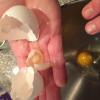How does the Art of Play change as Technology Progresses?
By Mystical MermaidSeptember 23, 2016 - 16:19

I think that every educator for young children can agree that play is important for developmental skills.
Serendip is an independent site partnering with faculty at multiple colleges and universities around the world. Happy exploring!

I think that every educator for young children can agree that play is important for developmental skills.

Kate Weiler

I chose the short posting by Kismet, Operation because I find it so relatable to the games that I would play as a child. Looking back to preschool, I remember playing house or doctor, and now, I can also think about how comical it was when we would just change roles in the middle of the game or break character just like the baby in the short posting. In my English Seminar, Changing Our Story, we performed skits for the class. In one skit, there were four children who were going to play a make believe game. However, they argued on who got to be who and changed their minds about which character they wanted to be. Similarly, in another skit, there were three children who pretended to Beyoncé, Joan of Arc, and a princess.

I define “play” as an activity young children perform that brings them happiness and pleasure. “Play” is usually associated with children as adolescents and adults do not use this word to apply to themselves. If people other than children use this word it is often looked down upon. Furthermore, that person is deemed as strange. Despite that, my idea of play is contradicted by Edensor, Evans, Holloway, Millington and Binnie through their article “Interrogating teleological understandings of play in spaces of material alterity and lower surveillance”. Their idea that play can take place in ruin sites contradicts my idea of play because many times young children are not wandering into ruin sites but young adults and adults are the ones doing so.

Nostalgia is at an all-time high these days. In an age of political instability, terrorism, education reform, and technological advancement, we often wistfully remember what are often referred to as “the good old days.” These are the days when kids could ride bikes all over town from dawn until dusk and their parents would rest easy without fear of creeps and kidnappers that might prey on their children. These are the times when you could play with your dolls instead of being rushed off to a Test-Prep Session or a Cello class. This was an era when kids played hide-and-seek in their homes instead of their rubble and ruins. In these troubling times we all want to remember those years that felt carefree and fun.

Play is any free activity that brings joy to someone. For children this could be playing on the playground, pretend house, wrestling, or caring for baby dolls. Now adults on the other hand may enjoy reading a good book, going shopping, or spending time with kids. While play varies among all ages, it is essential to the development of the brain to play. As Stuart Brown states in his interview, “Play, Spirit, and Character,” a child could learn more by playing at recess than by being in a classroom setting (Brown). This gives children the opportunity to find their own fun exploring. Kids needs to be given the freedom to figure out play and games on their own, without structure, in order to develop and grow as human beings.

It is an accepted view that almost all of us look back on our childhoods with a sense of nostalgia. (Henig, 2008) We long for the days we were able to spend carefree and happy. The strong association between our childhood and play has led us to see play as a right of passage, or even a necessity, for all children. UNICEF, in its Convention on the Rights of the Child, defines play as a basic right that all children should have access to. (Edensor, et. al, 2011) Despite this, significant evidence has shown that adults, when testing whether or not play has a positive effect on learning and development, have been made, albeit inadvertently, victims of “play ethos,” which is defined as a cultural view that play is necessarily advantageous for children.

I lived in the old part of Pasadena, Texas until I was eleven years old. By the time my parents were in middle school the area was already taking an economic plunge. Chain stores died and left, white flight was almost at its end, and ruins that were all too familiar to me growing up were setting in. With the decay of Pasadena came an increase in crime and instability in the neighborhoods. Therefore my mother never allowed my brother and me to explore the outside world very much. We were only allowed to ride bikes with our dad or an older cousin and only in certain places, I was only allowed to play in the yard for short periods of time and only if I stayed in front of the kitchen window or if my mom came out to watch me. So playing outside was never very appealing to me.

Princess Jefferson
When Play Was Play
In the Primary ages of our life, there is no distinction between fantasy and reality, all we know is that there is always time for fun. At early ages just about anything around you can become subject of models of your game, but what we don’t ever think about as children is why we play what we play or even the wherewithal from which it came; all we know is that the games we play fill that happy part of us known to childhood. The question that I pose is, when does play, stops being just play. Is it as you mature, or was does time for play just become expunged.
A class mate of mine describes her childhood ideals of play as follows:

I grew up in a house on the corner with a big backyard surrounded by gardens and a white fence. We were surrounded by three other yards, so we felt very cut off from the main roads; we loved to create our own mystical worlds. My younger brother and I used to gather large branches that fell from the pine trees, set them up around the biggest tree, and create teepees. We played games where we would sell guavas (balloons) from our own shops, and someone typically would end up crying because they stopped seeing the fun in having their fruit stolen. Most of our games revolved around being outside; we found all different types of forts in the bushes and if we couldn't find any, we would make them.